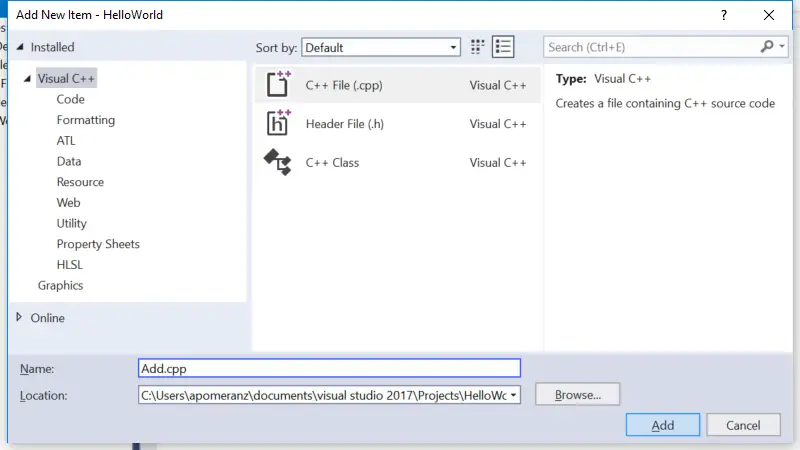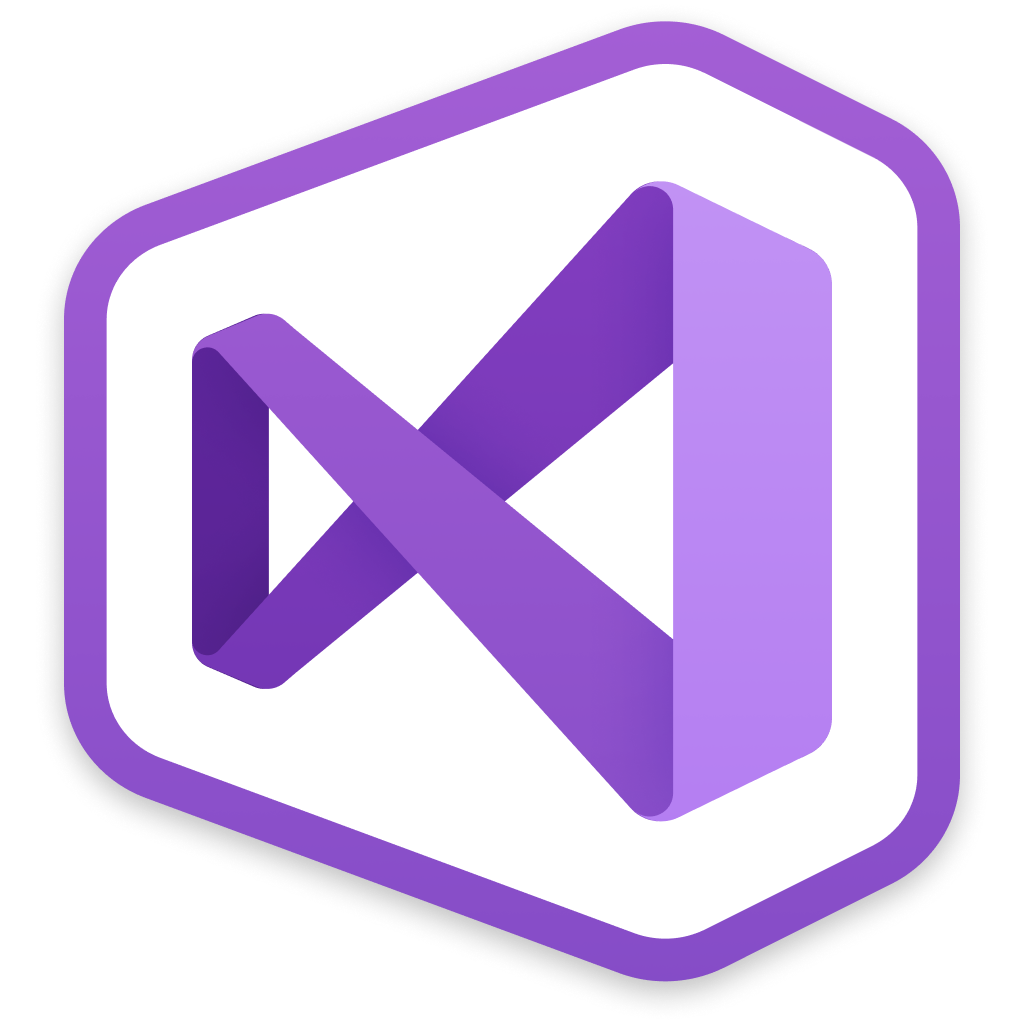-->
Note
DevSkim is a framework of IDE plugins and Language analyzers that provide inline security analysis in the dev environment as the developer writes code. It is designed to work with multiple IDEs (VS, VS Code, etc.), and has a flexible rule model that supports multiple programming languages.
This developer documentation applies to Visual Studio 2015 and later. To see the documentation for your preferred version of Visual Studio, use the Version selector control. It's found at the top of the table of contents on this page.
Can you compile C code in Visual Studio.NET? If so, can you please submit the proper steps in order to do this. Yes, you can. Go to Project and Properties, then somewhere in the myriad of options you'll see 'Compile as C' where you can change it to 'Compile as C'. And while you're at it. 学校情况, 除软件工程学院外,计算机系等基本都是使用Dev C的IDE。学校也买了企业版的VS版权。个人觉得VS使用体验比Dev C好很多。并且配合Visual Assistant可以高效写代码。同学请教c使用Dev C在没有插件和网络的情况下,我发现很难写出一个函数的正确参数.
If you are looking for a Visual C++ redistributable package so that you can run a program, go to the Microsoft Download Center and enter Visual C++ in the search box.
Microsoft Visual C++, usually shortened to Visual C++ or MSVC, is the name for the C++, C, and assembly language development tools and libraries available as part of Visual Studio on Windows. These tools and libraries let you create Universal Windows Platform (UWP) apps, native Windows desktop and server applications, cross-platform libraries and apps that run on Windows, Linux, Android, and iOS, as well as managed apps and libraries that use the .NET Framework. You can use Visual C++ to write anything from simple console apps to the most sophisticated and complex apps for Windows desktop, from device drivers and operating system components to cross-platform games for mobile devices, and from the smallest IoT devices to multi-server high performance computing in the Azure cloud.
Visual Studio 2015, 2017 and 2019 can be installed side-by-side. You can use Visual Studio 2019 (compiler toolset v142) to edit and build programs using the toolset from Visual Studio 2015 (v140) and Visual Studio 2017 (v141).

What's New and Conformance History
What's New for C++ in Visual Studio
Find out what's new in Visual Studio.
What's New for C++ in Visual Studio 2003 through 2015
Find out what was new in C++ for each version of Visual Studio from 2003 through 2015.
C++ conformance improvements in Visual Studio
Learn about C++ conformance improvements in Visual Studio.
Microsoft C++ language conformance table
A list of conformance status by feature in the MSVC C++ compiler.
Visual C++ change history 2003 - 2015
Learn about the breaking changes in previous versions.
Install Visual Studio and upgrade from earlier versions
Install C++ support in Visual Studio
Download Visual Studio 2017 or Visual Studio 2019 and install the Visual C++ toolset.
Visual C++ Porting and Upgrading Guide
Guidance for porting code and upgrading projects to Visual Studio 2015 or later to take advantage of greater compiler conformance to the C++ standard as well as greatly improved compilation times and security features such as Spectre mitigation.
Visual C++ Tools and Features in Visual Studio Editions
Find out about different Visual Studio editions.
Supported Platforms
Find out which platforms are supported.

Learn C++
Welcome Back to C++
Learn more about modern C++ programming techniques based on C++11 and later that enable you to write fast, safe code and avoid many of the pitfalls of C-style programming.
Standard C++
Learn about C++, get an overview of Modern C++, and find links to books, articles, talks, and events
Learn Visual C++
Start learning C++.
Visual Studio C++ Samples
Information about samples.
C++ development tools
Overview of C++ Development in Visual Studio
How to use the Visual Studio IDE to create projects, edit code, link to libraries, compile, debug, create unit tests, do static analysis, deploy, and more.
Projects and Build Systems
How to create and configure Visual Studio C++ projects, CMake projects, and other kinds of projects with MSVC compiler and linker options.
Writing and refactoring C++ code
How to use the productivity features in the C++ editor to refactor, navigate, understand and write code.
Debugging Native Code
Use the Visual Studio debugger with C++ projects.
Code analysis for C/C++ overview
Use SAL annotations or the C++ Core Guidelines checkers to perform static analysis.
Write unit tests for C/C++ in Visual Studio
Create unit tests using the Microsoft Unit Testing Framework for C++, Google Test, Boost.Test, or CTest.
Write applications in C++
Universal Windows Apps (C++)
Find guides and reference content on the Windows Developer Center. For information about developing UWP apps, see Intro to the Universal Windows Platform and Create your first UWP app using C++.
Desktop Applications (C++)
Learn how to create traditional native C++ desktop applications for Windows.
.NET Programming with C++/CLI
Learn how to create DLLs that enable interoperability between native C++ and .NET programs written in languages such as C# or Visual Basic.
Linux Programming
Use the Visual Studio IDE to code and deploy to a remote Linux machine for compilation with GCC.
Dev C++ Vs Visual Studio
Create C/C++ DLLs in Visual Studio
Find out how to use Win32, ATL, and MFC to create Windows desktop DLLs, and provides information about how to compile and register your DLL.
Parallel Programming
Learn how to use the Parallel Patterns Library, C++ AMP, OpenMP, and other features that are related to multithreading on Windows.
Security Best Practices
Learn how to protect applications from malicious code and unauthorized use.
Cloud and Web Programming
In C++, you have several options for connecting to the web and the cloud.
Data Access
Connect to databases using ODBC and OLE DB.
Text and Strings
Learn about working with different text and string formats and encodings for local and international development.
Languages reference
C++ Libraries in Visual Studio
The following sections provide information about the different C and C++ libraries that are included in Visual Studio.
C Run-Time Library Reference
Includes security-enhanced alternatives to functions that are known to pose security issues.
C++ Standard Library
The C++ Standard Library.
Active Template Library (ATL)
Support for COM components and apps.
Microsoft Foundation Class (MFC) libraries
Support for creating desktop apps that have traditional or Office-style user interfaces.
Parallel Patterns Library (PPL)
Asynchronous and parallel algorithms that execute on the CPU.
C++ AMP (C++ Accelerated Massive Parallelism)
Massively parallel algorithms that execute on the GPU.
Windows Runtime Template Library (WRL)
Universal Windows Platform (UWP) apps and components.
.NET Programming with C++/CLI
Programming for the common language runtime (CLR).
Visual Studio C++ Tutorial
Third-party open source C++ libraries
The cross-platform vcpkg command-line tool greatly simplifies the discovery and installation of over 900 C++ open source libraries. See vcpkg: C++ Package Manager for Windows.
Feedback and community
How to Report a Problem with the Visual C++ Toolset
Learn how to create effective error reports against the Visual C++ toolset (compiler, linker, and other tools), and ways to submit your report.
Microsoft C++ Team Blog
Learn more about new features and the latest information from the developers of the C++ tools in Visual Studio.
Microsoft Visual Studio C++
Visual Studio Developer Community
Find out how to get help, file bugs, and make suggestions for Visual Studio.